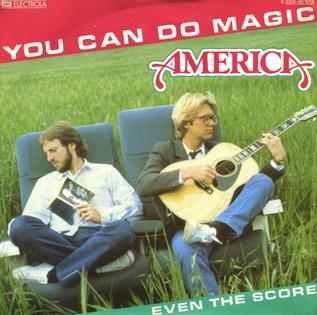Last year, I discussed a hallmark of Dungeons & Dragons, Vancian Magic. This week, I wanted to take a look at perhaps the most popular method of handling magic in role-playing games, Spell Points.
By "Spell Points," I mean a game mechanic whereby a Player Character's ability to use magic (or similar abilities) is denoted as magic points (or mana points, etc.) and where each use of magic has a certain magic point cost. Different spells have different magic point costs and if a Player Character runs out of magic points, they must wait until the game's recovery mechanic kicks in before being able to use magic once more.
Spell Points have been around since almost the beginning of tabletop role-playing games. For example, Warlock, a home-brewed variant of Original Dungeons & Dragons (1974) that used Spell Points, was published in the Spartan Gaming Journal in August 1975. No less a person than J. Eric Holmes, author of the Holmes Basic D&D Set (1977), was a fan of Warlock. Indeed, Messr Holmes tried to convince Gary Gygax, the co-creator of Dungeons & Dragons, to include a spell point system in Holmes Basic.
However, Messr Gygax was famously not a fan of spell points. For example, in The Dragon #16, he pontificated:
The above is, of course, just one of many examples of Messr Gygax passing off his opinion as fact and a part of his epic flame wars with various West Coast gamers in the 1970s.
Other minds were more open, even in the early days of the hobby. For example, Adventures in Fantasy (1978), the second fantasy RPG produced by Dave Arneson, the other co-creator of Dungeons & Dragons, used a Spell Point system. Of course, Adventures in Fantasy was a commercial failure, due in large part to the complete lack of marketing support.
Like Vancian Magic, a well-designed Spell Point system is simple, easy to understand and turns spells into a limited resource, adding Tactical Depth to a game. In addition, if the number of Spell Points is correctly balanced, a Spell Point system can help address Linear Fighters, Quadratic Wizards.
Hands down, the biggest attraction of a Spell Point system is that they give magicians great flexibility. However, that flexibility in a poorly-designed Spell Point system can exacerbate Linear Fighters, Quadratic Wizards, so due care must be taken to balance a game properly.
Spell Points have been around since almost the beginning of tabletop role-playing games. For example, Warlock, a home-brewed variant of Original Dungeons & Dragons (1974) that used Spell Points, was published in the Spartan Gaming Journal in August 1975. No less a person than J. Eric Holmes, author of the Holmes Basic D&D Set (1977), was a fan of Warlock. Indeed, Messr Holmes tried to convince Gary Gygax, the co-creator of Dungeons & Dragons, to include a spell point system in Holmes Basic.
However, Messr Gygax was famously not a fan of spell points. For example, in The Dragon #16, he pontificated:
"Spell point systems are also currently in vogue amongst the fringe group which haunt the pages of “Amateur Press Association” publications. Now APAs are generally beneath contempt, for they typify the lowest form of vanity press. There one finds pages and pages of banal chatter and inept writing from persons incapable of creating anything which is publishable elsewhere. Therefore, they pay money to tout their sophomoric ideas, criticise those who are able to write and design, and generally make themselves obnoxious.* While there are notable exceptions, they are far too few to give any merit to the vehicles they appear in. From this morass rose the notion that a spell point system should be inserted into D&D. Strangely enough, “realism” was used as one of the principal reasons for use of spell points. These mutterings are not as widespread as the few proponents of such a system imagine. The D&D magic system is drawn directly from CHAINMAIL. It, in turn, was inspired by the superb writing of Jack Vance. This “Vancian” magic system works splendidly in the game. If it has any fault, it is towards making characters who are magic-users too powerful. This sort of fault is better corrected within the existing framework of the game — by requiring more time to cast spells, by making magic-users progress more slowly in experience levels. Spell points add nothing to D&D except more complication, more record keeping, more wasted time, and a precept which is totally foreign to the rest of the game."
The above is, of course, just one of many examples of Messr Gygax passing off his opinion as fact and a part of his epic flame wars with various West Coast gamers in the 1970s.
Other minds were more open, even in the early days of the hobby. For example, Adventures in Fantasy (1978), the second fantasy RPG produced by Dave Arneson, the other co-creator of Dungeons & Dragons, used a Spell Point system. Of course, Adventures in Fantasy was a commercial failure, due in large part to the complete lack of marketing support.
Like Vancian Magic, a well-designed Spell Point system is simple, easy to understand and turns spells into a limited resource, adding Tactical Depth to a game. In addition, if the number of Spell Points is correctly balanced, a Spell Point system can help address Linear Fighters, Quadratic Wizards.
Hands down, the biggest attraction of a Spell Point system is that they give magicians great flexibility. However, that flexibility in a poorly-designed Spell Point system can exacerbate Linear Fighters, Quadratic Wizards, so due care must be taken to balance a game properly.


No comments:
Post a Comment